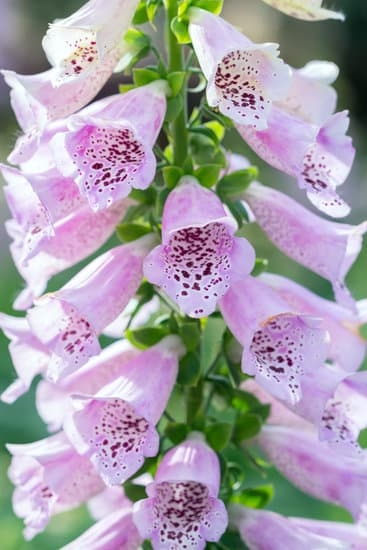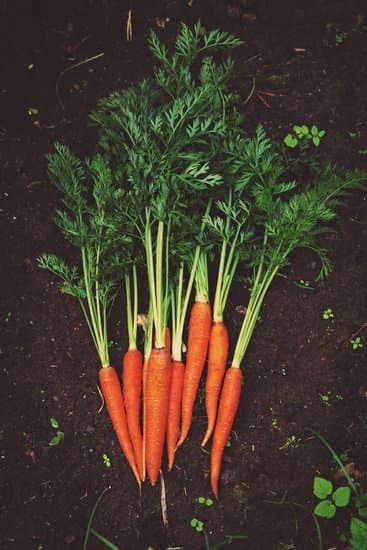Introduction
Gardening is an activity that many people enjoy for its peaceful, calming and enjoyable effects. While the practice of gardening can bring great pleasure to its participants, recent studies suggest that there may also be a connection between gardening and reducing depression. This article will discuss how gardening can help manage stress and relieve depression symptoms.
The physical act of gardening is known to stimulate the mind and body in positive ways such as reducing anxiety and encouraging relaxation. According to a study conducted at the University of Pittsburgh Medical Center, individuals who garden have lower levels of cortisol, a hormone released during stress. In addition, physical activity has been linked with improved mental health and increased feel-good hormones such as endorphins and serotonin. Thus, by engaging in activities such as tilling soil or planting seeds, one may experience an overall feeling of calmness. Additionally, individuals are more likely to form positive associations with nature when participating in outdoor activities such as gardening which can lead to further feelings of tranquility and peace of mind.
In addition to providing psychological benefits, certain types of gardening activities have been found to alleviate symptoms related to depression such as low self-worth or negative thoughts. For example, interacting with other like-minded people who share similar interests can provide social support which often helps reduce feelings of loneliness associated with depression. Furthermore, tending to plants offers tangible results that can help bolster confidence levels. Taking care of plants requires patience and commitment which often help build feelings of accomplishment over time leading to greater spiritual fulfillment and emotional wellbeing.[2] Thus, it appears that gardening is linked not only with stress management but also with improving general moods thus helping reduce existing depressive tendencies.
Finally, it has been suggested that in some cases engaging in activities like gardening may do much more than reduce symptoms related to depression; they may even provide support for long-term recovery from mental illness. By creating meaningful experiences which involve planning goals while nurturing growing plants provides a sense of purpose in life; something so often missing amongst those suffering from major depressive disorder or other forms of emotional distress.[3] Hence it seems reasonable to surmise that the simple act of picking up one’s trowel can offer far more profound effects than previously thought possible!
In conclusion Gardening seems to offer an effective way to manage stress levels while potentially supporting recovery from depression related issues due frequent involvement leads improved physiological state, favorable psychological conditions and renewed spiritual fulfillment . Although research into this matter is ongoing currently evidence suggests strong correlations however further studies are required recognize magnitude these effects before definitive conclusions made .
Exploring Different Ways to Garden for Mental Health
Gardening has long been known to have a positive effect on mental health. People who garden often experience increased happiness, reduced stress levels, and better quality sleep. Beyond providing basic levels of joy and comfort, gardening is thought to stimulate the creation of endorphins—chemicals in the brain that are responsible for feeling good and relieving pain. Moreover, it encourages an intimate connection with nature, which can be healing and inspiring.
The process of caring for and organically growing plants can also be seen as a form of therapeutic self-care. Working with soil is often linked with grounding feelings while also providing a creative outlet to express emotions through colors and designs. Furthermore, tending plants provides purposeful activity that can fill large amounts of time constructively. Social connections may also be formed by participating in activities like community gardens or shared outdoor spaces that cultivate responsibility and connectedness among those working in it together. This can ultimately result in stronger feelings of belongingness and self-worth in addition to reducing loneliness – all common symptoms related to depression. Further research indicates there may even be physical benefits from gardening such as lowered blood pressure levels which should never replace seeking professional help or talking therapy for severe depression cases but can act as augmentation for recovery.
An Overview of the Best Plants for Stress-Reduction and Anxiety Relief
Gardening can be an effective way to reduce your stress and anxiety. Not only does it give you something to do that is productive, but the act of gardening itself is therapeutic and calming. In recent studies, people have reported feeling more relaxed and fulfilled when gardening compared to other activities. Additionally, the act of caring for plants can help boost self-esteem and overall well-being.
The best plants to look for when trying to reduce stress and anxiety levels are those with pleasant scents and features such as lavender, chamomile, rosemary and jasmine. Lavender is known for its soothing properties while chamomile has been proven to reduce tension headaches. Rosemary contains several essential oils that have anti-stress effects while jasmine has a pleasant scent that can reduce feelings of depression. Other plants recommended for stress reduction include basil, sage, thyme, mint, catnip and eucalyptus. Planting any of these herbs in your garden will not only provide a beautiful focal point but also a natural source of healing energy around your home or garden. Having access to all these different plants means that you can benefit from their copious benefits whenever you need them most – mentally or physically!
Learning to Garden
Gardening is a hobby that has been studied for its benefits in aiding with depression. Studies have found that this activity can help reduce symptoms such as sadness, stress, tension, and hopelessness. Being able to get outside and take care of something calming and peaceful can be a great way to improve your mental health. Gardening can help by providing a feeling of accomplishment as plants are nurtured and cultivated through the process. It may also provide an outlet for creative expression or a sense of purpose as you work to maintain your garden space.
Additionally, therapeutic gardening combines physical activity and nature-based activities transforming traditional gardening into a form of therapy focused on improving physical, psychological and spiritual health. Planting crops or tending to flowers or vegetables forces the gardener to stay active every day, thus improving physical well-being along with give them something meaningful to focus on throughout the day, rather than their symptoms of depression. Research conducted in Japan revealed that people who spent time gardening experienced decreased cortisol levels, lower heart rates, improved moods and relaxation effects when compared to those who did not garden. Other researchers conducted in Scotland measured psychological responses among individuals before and after they completed gardening activities indoors or outdoors in natural areas finding significant improvements in wellbeing among those who had exposure to nature or green spaces within the environment compared to those without it. Having exposure to natural elements during gardening doesn’t just lift spirits but additionally brings further long-term environmental benefits such as improved air quality and cooling temperatures during hot summer months.
The Role of Care
Gardening has long been seen as a source of solace, connection and healthful activity. As such, it is not surprising to see how the act of gardening can be incredibly helpful for those struggling with mental health issues like depression. Gardening provides a positive distraction by helping individuals engage in an activity that requires full engagement and focus. It also connected them to nature and the outside world, which can help with feelings of loneliness or isolation brought on by depression.
In addition to offering relief from feelings of loneliness and isolation, there are several mental health benefits associated with gardening that can improve symptoms of depression. These include: stress reduction, enhanced mood, increased sense of purpose, improved concentration and focus, improved self-esteem and improved overall physical health. It is especially beneficial for those experiencing major transitions or stressful life events due to its calming effects and opportunity to engage in positive activities outdoors.
Gardening also helps cultivate healthy relationships. Sharing knowledge or allowing others to help out gives individuals the chance to build meaningful connections that can be a form of support during difficult times. Even if you don’t have someone else who wants to join in on your fun in the garden, simply being able to talk aloud can have therapeutic effects. Finally, when done on a regular basis gardening promotes routine which is often seen as helpful for individuals dealing with depression due having more structure provided in their lives as well as providing satisfaction upon reaching goals regularly accomplished through maintaining a garden
Advice from Experts
Gardening as a form of therapy is becoming increasingly popular for treating depression, particularly in areas where access to professional help may be limited. There are a variety of ways that gardening can help prevent and treat depression, including the ability to improve one’s mood and mental wellbeing by providing an outlet for stress relief, boosting self-esteem through accomplishment, teaching better coping skills, and providing engaging physical activity; all with low risk.
Gardening can be used to loosen anxiety and reduce stress levels in several ways. Research has shown that going outside into nature releases endorphins and natural antidepressants that are beneficial in managing symptoms associated with depression. It also encourages repetitive motions such as weeding, raking or mowing which can help to naturally relax both the mind and body. Being able to see the tangible results of your hard work provides affirmation and a sense of accomplishment which can really boost self-esteem during times of low self-worth often caused by depression.
Furthermore, gardening requires problem solving skills which can provide useful lessons in learning healthy coping mechanisms when dealing with difficult emotions brought on by depression. Lastly, being so close to nature has been found to have calming effects that serve as a distraction from negative thoughts or stressful mindsets as well as providing beneficial physical activity for those struggling with energy problems caused by depression. All this together helps build up confidence and can foster healthier habits both mentally and physically – ultimately inspiring more hope within yourself instead of relying on external validation or approval.
Tips for Success
Gardening is a proven source of comfort and joy for many people, especially those dealing with depression. With some time in the garden, you can have fewer symptoms of depression, reduce stress and even take part in activities like socializing or bringing beauty to your neighbourhood. However, it’s important to understand that gardening is a form of work as well as leisure activity. To get the most out of your garden — without becoming overwhelmed — it is best to approach it by following some tips for success:
1. Start small – Choose a manageable area of your yard or create a pot-based garden which can be moved easily when needed.
2. Plan ahead – Consider what plants might thrive in the space you choose and determine when they will need maintenance. Have tools on hand so you don’t get stuck halfway through a job!
3. Take advantage of online resources – There are lots of helpful online tutorials available on gardening topics such as pest control, soil management and drought-proofing your garden.
4. Improve access by adding pathways – Paths through your garden are not only aesthetically pleasing, but also make maneuvering wheelbarrows or carrying planters easier and less dangerous during wet weather conditions.
5. Get some help – Embrace the companionship offered by gardening clubs or groups—it’s not only more fun with other people around, but you also get to share tips with each other on how to better care for your plants!
6. Break up tasks over time – Don’t try to do too much at once; break up large tasks into smaller ones spread over days or weeks and allow yourself rest days in between them if necessary.
7. Monitor itself-water levels regularly – Check up on water levels in pots containers and boxes as they may dry out quicker than plants planted directly into the ground; amend soil with mulch regularity top retain moisture!
8 .Learn from nature– Observe other gardens nearby so that you can learn from their successes and mistakes; ask homeowners questions if possible about their practices in caring for their own space; this will help you make smart decisions about your own plot!
Inspiring Stories
Gardening has become a popular activity, particularly amongst those who suffer from depression. When people are feeling down, they tend to have difficulty emotionally engaging and find it difficult to focus their attention on one particular task. Gardening requires focused effort and encourages the performer to stay engaged in the environment around them. Through gardening activities, individuals with depression can benefit from both an emotional and a physical perspective, leading to improved mental health outcomes.
Studies indicate that gardening can help reduce symptoms of depression by engaging multiple senses at once such as sight, smell and touch as well as providing a distraction from overwhelming thoughts. In addition, it also fosters relaxation and allows for reflection, which helps bring release to emotions that may have been bottled up, allowing sufferers of depression to feel less alone with their struggles and more connected with nature. Furthermore, it helps develop patience while allowing the gardener time to practice mindfulness techniques while in nature’s embrace.
There are countless inspiring stories of people who have experienced positive mental health outcomes through gardening activities. Many report that working with their hands within the outdoors brings joy and fulfillment in ways they didn’t experience before giving it a try. From life-long gardeners rediscovering the healing effects of nature to those new to gardening learning about new plants or discovering how different species interconnect—this newfound connection with nature has been known to bring peace of mind and comfort during times of difficulty. Even if you don’t feel inspired enough to tackle a full-on garden project just yet, there’s definitely something calming about taking care for simple plants or even starting small seedlings indoors.
Conclusion
Gardening has been embraced as a powerful tool to help manage depression and anxiety levels. Studies have proven that getting into the garden and engaging in regular, meaningful activity can have a positive impact on your mental wellbeing. Gardening encourages relaxation, boosts mood, reduces stress, and is a great distraction from negative thoughts. It also provides an opportunity for physical activity, fostering a connection to nature which can be calming and meditative. Taking part in something with practical purpose like caring for a garden creates tangible accomplishments that provide motivation and help build confidence. Building community by sharing gardening knowledge with others or engaging in communal projects adds an extra level of satisfaction to the experience. The power of gardening has long been documented as being beneficial to both physical and mental health. With all of its benefits, embracing the power of gardening may just be the key to living a happier and more mindful life.

Welcome to my gardening blog! I am passionate about plants and enjoy sharing my knowledge and experiences with others. In this blog, I will write about everything related to gardening, from tips on how to get started to updates on my own garden projects.





